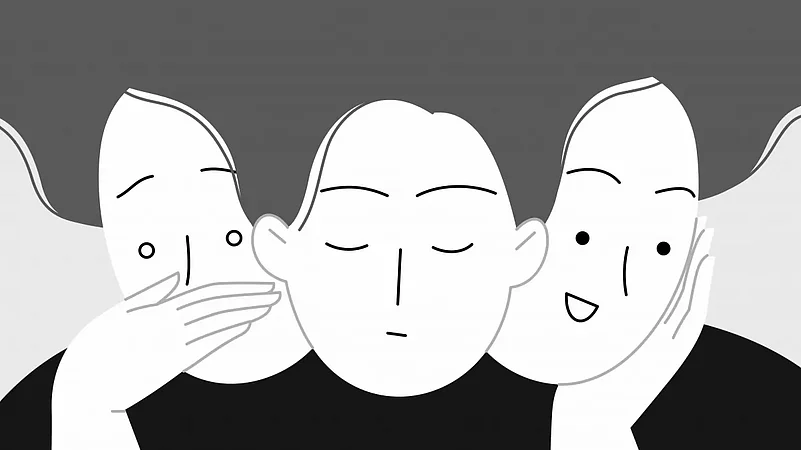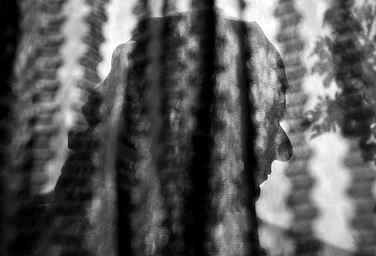Even though I have everything, yet I have nothing; this is the feeling people suffering from borderline personality disorder have. They are EMPTY, to the core. This emptiness drives the most functional of people suffering from this grave illness to madness. A deafening silence lurks within us, our capacity to handle emotions is, for want of a better word, dead. I was 32 when my first book on borderline personality disorder came out. I was lauded, congratulated, celebrated for months after. But what then? What became of me? In the last line of my book, I wrote that I will try to diminish the symptoms of BPD and live. But sometimes I want to die. I want to die just to end the pain, end this hollowness. I did a few literature festivals afterwards as festival director. In all the fests, I kept mental health as the theme in order to highlight the importance of mental health education in society. We are getting there and yet, we have a long way to go. You know why? Because as humans we have low bandwidth and less and less of time, patience, energy to sympathise, empathise and be patient with a mentally ill person.
The genesis of BPD is hazy, it is a personality disorder and so it is enmeshed in one’s personality. One is just that way, one cannot help it. However, the root cause does lie in early childhood abuse or neglect, absence of a parent or both parents in the child’s life. Broadly socio, environmental and triggering events can cause a personality disorder. I will not define it but the symptoms are long periods of feeling empty, fear of abandonment and rejection, reckless behaviour either while spending or gambling or having sex and using drugs (alcohol and tobacco included). All or nothing thinking, instability in relationships (very hard to maintain long lasting healthy relationships), extreme and impulsive behaviour. Oscillation between psychotic and neurotic behaviour. Anxiety, depression, mood swings to a point where one minute we are ecstatic and the next minute, for no obvious reason, we are crying. Outbursts of anger which do not merit the provocation and a tendency to self-harm, suicide ideation of which 10 per cent of us do end up taking their lives.
Having outlined the major symptoms of BPD, I want to give some examples of such behaviour from my own life. I am 38 now and I do want to get married and settle down. My mother’s worst fear is whether I will be able to handle a commitment like marriage having BPD. I get called fat all the time because the medicines make you gain weight, men don’t look at me at all and the ones I approach outrightly reject me because of my weight. I’m not saying all men are like that, however, even my family says “lose weight now, or no one will want you”. Most of us who take antipsychotics put on a considerable amount of weight because we feel so hungry after taking them at night and can empty a fridge. This is where society, family and friends need to be sensitised.
I want to tell everyone that mentally ill patients can get married. We can try to lose weight too, but not everything is in our hands so we sometimes get frustrated and become difficult to handle. In the hectic lives of people where is the time for a cry-baby, right? That’s what mental health professionals are for, no? I have the most profound sessions with my psychiatrist and counsellor but soon memory begins to fade and the old patterns come back in the aftermath of a bad day. We self-fulfil a prophecy, we love people so much, we smother them with love that they feel stuck in our intensity and break it off with us or demand space, which our minds perceive as abandonment. So, we beg, bother others to stay in our lives but they leave because of us. And then the prophecy comes true as we are rejected and abandoned. This rejection that we go through makes us put others on pedestals and make them gods to whom we must bow down, sacrifice any iota of self-respect that we have and become obsessed.
I have groups which I am a part of (BPD Groups) and all have similar stories to tell. Our neediness is caused by fear, but it is no excuse to behave poorly at all. However, if we sensitise society from the school and college levels we can achieve a great target—a happier, more understanding society. In a café, I watch people sitting with friends and everyone is on their phone. Has society diminished face-to-face organic interaction in the moment and replaced it with what lies ahead? The answer is yes, unfortunately! I go to school and give lectures on mental health and I see a pattern within the pupils—I am not happy, I want more, I am expected to be more.
Then comes adulthood, ‘I want more, the best job, the best house, the best spouse, I want it all…’ Yes, success is important but not at the cost of oneself, one’s peace of mind. Why are people flocking to ashrams, to retreats, to Gurus? Because the lack of understanding between human beings is leading to extreme unhappiness in this world. STOP! Just stop, take a deep breath and look around, there is no moment but the current one. Live in the moment and this applies to all of us. People with mental illnesses live either in the future leading to anxiety or in the past, leading to depression. If only we were taught from childhood that we want to be happy, that’s it! We would be nurturing healthier individuals.
How does society become sensitised to any sort of mental illness? First, it’s a two-way street. Help us the sufferers and help yourself too before we rub off our illness on you. Let us be aware and accept there is a problem and to address that problem, an open-ended, healthy dialogue should happen within the family and friend circle. There is too much judgement in the world, let’s shred that dark cloak and embrace the light of reality. Let’s sit down and actually talk instead of being glued to our devices. The flow of all information in this world is through talking, through honest dialogue. If a mentally ill person crosses your boundary, gently remind them not to do so, listen to them and then choose kind language to explain to them to be more mindful. On our part, we know that we have to blend into the cultural landscape of society and we try our best to be genuine. If an outburst occurs, don’t leave us, rather explain things to us and we will listen.
We are looking for a kind ear and a little understanding from others. Often, we forget that what really matters is kindness, humility and human connection, not a penthouse where one would cry oneself to sleep, alone, drunk as hell. Humans need understanding regardless of mental illness or not. So, together we can weave a new fabric of nature and become a healthier society; with care and that magic that is mindfulness.
(Shabri Prasad is a mental health activist and author)





















